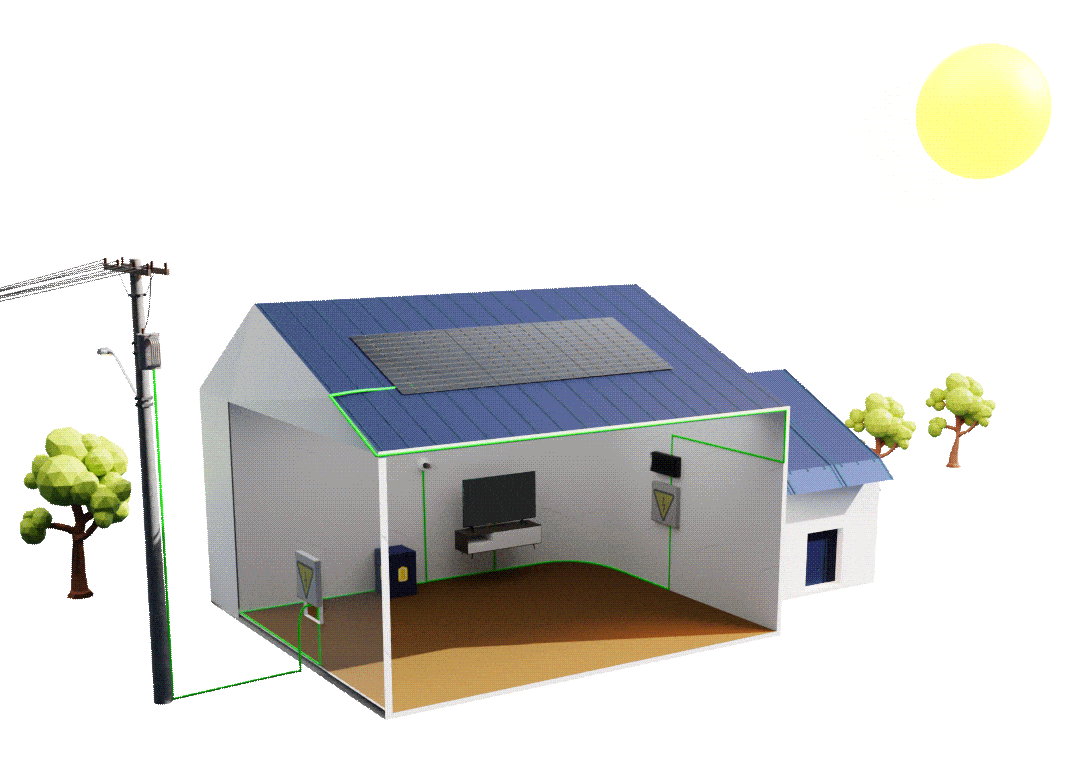
Thermal imaging is an electrical testing process which uses infrared light wavelengths to measure the temperature of an object. A thermal imaging camera is a hand-held, non-contact technology that converts the infrared waves emitted by an object into a recognisable colour spectrum, through which we can differentiate temperatures and therefore identify electrical problems via problematic heat spots.
Solar panels are an increasingly popular sustainable technology used in residential homes and by commercial businesses. They are made up of photovoltaic cells usually installed and linked in series, and the electricity generated by converting radiant energy from the sun can be used as a renewable energy source for domestic or commercial purposes, and to replace energy sourced from the national grid. It is essential that the performance of solar panels is monitored and verified, and thermal imaging plays an important role in the maintenance of solar panels and in diagnosing problems. Being able to detect temperature variations in solar panels can highlight underlying issues quickly and often in a way that prevents serious problems.
How does thermal imaging work with solar panels?
In order to carry out accurate and reliable monitoring with a thermal imaging camera, you will need some base data. This means you need optimum conditions with which to compare the results you get. So you should measure and make note of the solar irradiance and the ambient outside temperature when the solar panels were first installed and operational, so you can now compare results accurately and allow for differentials in establishing whether results are irregular or identifying potential problems.
Essentially, any hotspots generated by a solar panel can be identified by a thermal imaging camera. This will identify electrical problems and can also help to monitor the performance of the solar panels.
- Identifying electrical problems – Hotspots on solar panels can be caused by defective cells. This is where physical damage can occur to cells, such as cracks and impurities which lead to abnormal heating patterns. Faulty connections and poor installation can also lead to hotspots, as overheating creates irregular heat patterns which are detectable by the thermal imaging camera. This method of testing and monitoring is also able to identify problems early, and before they cause serious problems, as long as monitoring is vigilant and regular.
- Monitoring performance - Thermal imaging can identify where areas of shading or a solar panel being covered in fine dirt or debris is affecting performance. This will manifest itself in surface temperatures being lower in certain areas, which may not immediately be visible, and means a solar panel should be cleaned and any obstructions removed, or the solar panel itself being moved, if possible. An array of solar panels linked in a series should produce uniform results, and a thermal imaging camera can identify where this isn’t the case, which could highlight an underperforming panel being defective. Recording this performance data also allows trend analysis to be observed which can highlight performance problems over time.
The benefits of using thermal imaging for solar panel diagnostics
- Non-invasive – Thermal imaging can be carried out while the solar panels are still operational and nothing needs to be disconnected or removed.
- Fast and efficient – The operation of thermal imaging cameras is very quick and simple and images and results are displayed in real-time.
- Early – Electrical or performance problems are identified early, often before costly breakdowns or downtimes are experienced.
- Safe – Because thermal imaging is non-contact and non-invasive it can be carried out from a safe distance and with no access to the live solar panels required, in case of any electrical problems. For large installations you can even use drone technology to transport the thermal imaging camera and to establish the required proximity to the solar panels.
High quality thermal imaging cameras from Test Instrument Solutions
You can develop an accurate and reliable testing schedule for your solar panel installation by using thermal imaging equipment. Check out our range of thermal imaging cameras at Test Instrument Solutions and speak to our experts about your testing requirements.
Please note that this section is for information purposes only. Anyone using equipment referred to in this section must be suitably qualified and/or experienced within the respective field. If in doubt before use, please consult a qualified electrician or engineer & thoroughly read all instruction booklets.